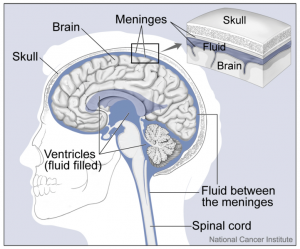The New Haven, CT school is the latest institution of higher learning in recent weeks to report on a student being treated for meningitis. According to Yale University, a Yale College student was admitted to Yale-New Haven Hospital with probable bacterial meningitis (meningococcal disease).

In a report in the Yale News Daily, a close friend of the patient said she was told by clinicians that the patient has been contagious since Jan. 26 and was brought to Yale Health by their suitemates after being sick for some time.
As a precautionary measure, the university is working with local and state departments of health to identify those who had close, extended contact with the student in order to offer preventative treatment.
The university has activated its emergency response protocol and set up a telephone hotline staffed by healthcare professionals for those seeking additional information. The hotline number is 866-924-9253.
Meningococcal meningitis is caused by the bacterium, Neisseria meningitidis, which causes the most severe form of bacterial meningitis. Meningitis is an infection of the membranes covering the brain and spinal cord. It can also be found in the bloodstream. This particular type of meningitis is very severe and can result in death if not treated promptly. Even in cases where treatment has been given, the fatality rate is around 15%.
The symptoms of bacterial meningitisare sudden, with fever, stiff neck, body aches and headaches. As the disease progresses other symptoms may include nausea, vomiting, photophobia and seizures. A petechial rash seen on the trunk and lower extremities, bleeding complications, multi-organ failures and shock are usually final signs. This disease has the ability to kill within hours of getting it.

Image/CDC
Up to 10-20% of older children and young adults carry this organism in the mouth and nose, though the carriage rate will vary with age and closeness of population. The majority of people that carry this bacterium have no clinical disease. The organism is spread person to person through respiratory secretions from the nose and mouth (coughing, sneezing and kissing). Experts are unsure why some people advance to meningitis disease while many do not.
Crowded living conditions facilitate the spread of the organism and places like military barracks and college dormitories are well documented areas of concern with this disease. For more infectious disease news and information, visit and “like” the Infectious Disease News Facebook page.


3 thoughts on “Yale student hospitalized with probable meningococcal meningitis”